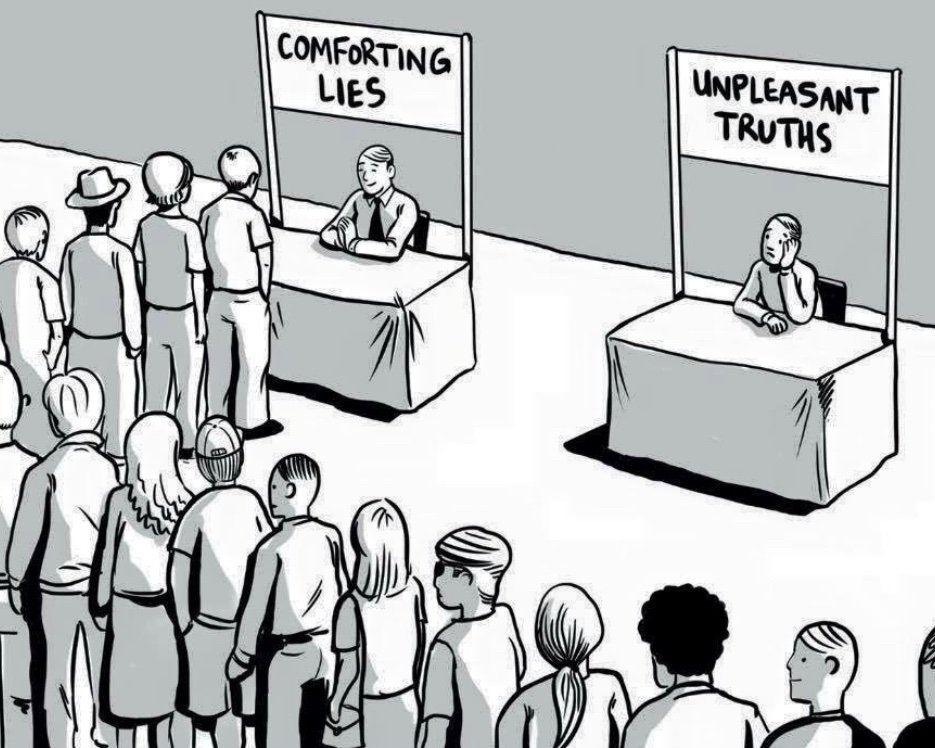Highlights
- Disabling the enabling
- Social accountability redux
- At the sharp end
- Data – $, openness, structure, partnerships
- Checking under all the cushions
- Donor lingo bingo
- TAI Spotlight: Data use in context
Disabling the enabling

Image Credit: Kleptocracy Now
Tutu Alicante of Equatorial Guinea kicks us off this week, urging a crackdown on Western enablers of kleptocracy. That extends to the role of accountants, so welcome to see Carsten Jung and Shreya Nanda lay out why the UK, for one, needs urgent reform of the audit sector.
Switching continents but staying with financial centers, interesting to see new financial accountability regulations come into effect in Singapore and Hong Kong and the potential to learn from institution of similar rules in the UK.
The need for good regulation is all the more apparent given the sharp rise in fraud during the pandemic. The Financial Transparency Coalition released their COVID Bailout Tracker report covering data from nine countries – Kenya, South Africa, Sierra Leone, Bangladesh, India, Nepal, Honduras, Guatemala, and El Salvador. 63 percent of their recovery funds last year went to big corporations instead of social protections, SMEs, or those working in the informal sector. For their part, Daniela Cepeda Cuadrado and Daniel Hausenkamph wrote a two-part series blog to learn more on how grand corruption during Covid-19 threatens human rights and opportunities for holding public officials accountable for corruption offences.
We doubt the picture is much better in OECD countries. Continuing our thread on UK issues from last week, Transparency International examined £18 billion COVID-related contracts awarded over a 9 month period in 2020 for their Track and Trace report. A fifth of contracts raised red flags for possible corruption.
Want more data points of COVID impacts on governance? Check out the inaugural Chandler Good Government Index released yesterday.
Social accountability redux
What does this all mean for participation and democratic processes? Andrew Wainer and Smita Baruah detail cases of subnational health budgeting in Kenya and the importance of public participation that is helping to build more resilient health financing amid COVID-19, while Hans-Otto-Sano notes that majority of African States have expanded their social assistance policies during the pandemic but cautions that politicization of social protection may leave many behind.
Staying with concepts of responsive public service initiatives, Justice Gua argues that accountability is the path to better governance in Papua New Guinea, while Tom Aston is prompted to revisit a more fundamental question of “What actually is social accountability?” He looks at the origins of the concept, what it does not equate to and concludes with a revised definition – useful read for all accountability wonks (such as ourselves).
Turning to the quality of public debate and integrity of voting, European Partnership for Democracy, Open Government Partnership, and Open Governance Network for Europe offer five ways to ensure open government values are at the heart of online political advertising regulation, while Khabele Matlosa explains how the COVID-19 pandemic has caused a multifaceted crisis of international election observation in Africa.
At the sharp end
Congratulations to Sibusiso (S’bu) Zikode on winning the Per Anger Award, the Swedish Government’s international prize for human rights and democracy. Zikode fights for the rights of the poor and most vulnerable in South Africa through Abahlali baseMjondolo and is all too familiar with the risks that social change actors run. However, few face the dangers of environmental activists in Latin America. Perhaps some good news then last week (on Earth Day no less), when 24 countries in the region signed an environmental treaty that includes provisions for the protection of environmental defenders.
That treaty is welcome news to members of the Publish What You Pay global coalition, who just adopted a first global positions on the energy transition which will act as a guide for their work to secure a just energy transition that responds to climate emergency and the needs of resource dependent countries. (Hear directly from the coalition’s director in our Full Disclosure interview – see below.)
United Nations University-CPR examines challenges and lessons learned from the transformation of humanitarian aid provision during the COVID-19 pandemic, while Mark Lowcock lays out a proposal to deliver more accountability within the sector.
Civil society groups of all types have certainly felt the strain through this pandemic past year. Wolfgang Jamann shares some learnings from adaptation and highlights an urgent need to intensify and radicalize partner support, power shift, and locally-led responses while redefining mandates of internationally operating civil society organizations.
We’ve all been made more reliant on technology, so interesting to read of Engine Room’s work with FRIDA Fund to identify opportunities for a more effective strategic use of tech. Engine Room’s Paola Mosso spoke with FRIDA Fund’s Ledys Sanjuan, about how their work contributed to the overall technology and data strategy, and the impact of their work together.
Data – $, openness, structure, partnerships
Noting a lack of funding for foundational data products, tools, and analysis, the World Bank calls for an established target for the government expenditure on data, likely as a fraction of GDP or total government expenditure. The Open Data Watch team would urge that the funding be targeted to opening up national statistics. They review the history of open data in official statistics and how it can be used to improve governance.
Reflecting on the strain of supporting such a diverse network this past year, the Global Partnership for Sustainable Development Data highlights lessons from partner engagement. The value of the network in aggregating needs and solutions and the importance of sharing experiences, opportunities, and challenges are both points that resonate with TAI’s own experience.
As more jurisdictions commit to collect and publish beneficial ownership data, pioneer country experiences suggest the devil is in the details, it’s good to see Open Ownership publish a multilateral guide to beneficial ownership form development, including an example form that addresses some of the key challenges implementers face.

Long read of the week – check out Sam Gilbert’s Good Data: An Optimist’s Guide to Our Digital Future that starts from the premise that data can make life better for all. Sam leads you through data control, ethics, privacy, but ends with a call for good digital citizenship that can enable better outcomes for all, whether on health, science or development.
Checking under all the cushions

No doubt that governments are having to get used to significant budget deficits as they try to spend their way out of crisis. The OECD details recent tax trends in 27 Latin America and Caribbean economies that showed moderate increases in revenues before a sharp decline in 2020 as the COVID-19 pandemic drove down economic activity.
Where can the taxman find solace? Well, the shift to remote work during the pandemic encourages a look at the impact of digitalization of tax administration, focusing on taxpayer services, compliance risk management, remote working, IT systems and providing support for wider government. Abou Bakarr Kamara recommends renewed attention to property tax, too. Reflecting on Freetown’s experience, he says cities need deliberate and coordinated policies for property tax reform.
Some inspiration, too, from Uganda, where tax reforms have generated praise. Experts argue the Uganda case shows how tax transparency can help developing countries strengthen their tax and resource mobilization capacities with the help of strong government commitment, clear strategy, and coordinated support from development partners.
For its part, the Biden administration is determined to close tax loopholes, but also challenging political convention with a tax hike on wealthy Americans to 39.6% under consideration.
How long before Turkey is forced to consider radical revenue measures of its own as opposition and fiscal analysts keep up pressure to find out what happened to a missing $128 billion used to shore up the currency in recent years.
Want to read up on tax? In honor of World Book Day, we were glad to see the International Center for Tax and Development making several books available for open access. Our pick? Taxing Africa: Coercion, Reform and Development.
Donor lingo bingo
Catherine Cheney shares key takeaway and recommendations from the Skoll Foundation World Forum on how funders can navigate partnerships with governments to scale impactful innovation in the public sector, while Emily Young and Peter Ellsworth reflects on two decades of grantmaking and how building strong relationships with grantees led to unexpected opportunities for impact.
Don’t miss Duncan Green’s two part review of implementing adaptive management. His analysis covers reason for adopting of adaptive management and how to put adaptive management principle into practice in the aid industry in 15 easy steps.
Meanwhile, the Center for Effective Philanthropy’s Mena Boyadzhiev and Alina Tomeh share insights from their discussion with leaders from private foundations on how to approach and structure foundation-wide strategy reviews.
Finally, check out the UK Funder Collaboration Toolkit, a set of 12 practical resources and templates to enable more effective collaboration.
TPA Full Disclosure: Elisa Peter on why you should care about transparency in extractive governance

Elisa Peter has lived and worked in eight countries driving international policy processes in the field of transparency, civic participation, accountability, sustainable development, climate change, human rights and peace/security. As the current Executive Director of Publish What You Pay (PWYP), she drives a people-centered agenda for an open and accountable extractive sector. We spoke to Elisa on the realities of the resource curse, the impact of the pandemic on advocating for a more open extractive sector, and the resilience of PWYP activists fighting for justice in natural resource governance –not forgetting her over two-decade-old wisdom in international advocacy.
Essential Read: TAI Collaboration Case Note: COVID-19 Funder Responses
Want to know how a flexible approach allowed TAI to pivot and adapt thoughtfully to the pandemic? Read our new Collaboration Case Note on COVID-19 Funder Responses and discover how the use of TAI platform helped members (Luminate, Chandler Foundation, Open Society Foundations, William and Flora Hewlett Foundation, MacArthur Foundation, and Ford Foundation) make sense of the global pandemic, its repercussions for their grantees, and their own funder strategies.
TAI Spotlight: Data use in context
Action research collaboration on multi-level accountability politics: The ‘different’ that makes a difference | Transparency and Accountability Initiative (TAI)
What does it take to do transparency, participation, and accountability (TPA) differently? Joy Aceron reflects on the kind of knowledge partnership Accountability Research Center and G-Watch (Government Watch) harnesses in wielding TPA’s power shift agendas and how to sustain the gains of reforms and change campaigns in politics and governance that matter to people.
We stand for democracy | Ford Foundation
Ford Foundation President, Darren Walker joined more than 700 business and nonprofit leaders to take a nonpartisan stand in defense the US democracy and protect citizen’ right to vote.
Luminate’s partner support program in Latin America | Luminate
Five months after the launch of Potencia, Luminate’s organizational strengthening program that increases the capacity of its Latin America portfolio, the organization has committed to provide support in three key areas: financial resilience, people & culture (human resources management), and programmatic impact.
Job Listings
- Job postings at Hewlett Foundation – Ongoing
- Job postings at MacArthur Foundation – Ongoing
- Job postings at Open Society Foundations – Ongoing
- Job postings at Luminate – Ongoing
Job postings at Ford Foundation – Ongoing - Job postings at FCDO – Ongoing
Calls/Opportunities
- Funds for civic empowerment organizations in Latin America – April 30, 2021
- Ford inclusive Recovery Letter of Intent – Towards an Inclusive and Sustainable Economic Recovery – May 2, 2021
- NRGI Consultancy: Nigeria – Imagining a future beyond oil – May 3, 2021
- Paris Peace Forum: Call for projects – May 9, 2021
- West Africa Civil Society Institute (WACSI) call for papers and articles – Open year-round
- USAID’s Development Innovation Ventures (DIV) grant funding – Ongoing
- Call for research proposals Tax and civil society – No Deadline
- Free Digital Security Training – Ongoing
- Call for proposals: Informality, tax, and the state – Proposals accepted on a rolling basis
Calendar
- Chandler Good Government Index – 26 April 2021 (9:30am UTC/GMT)
- Are we better off divided? Philanthropy’s role in moving America forward – April 29, 2021 (2:00 PM-3:30 PM ET)
- The climate crisis and humanitarian need: Responding for the world’s most vulnerable communities – April 29, 2021 (09:00 EDT/14:00 BST)
- Implementing ESG Due Diligence and Transparency in Extractive Commodity Trading – April 29, 2021 (8am ET / 2pm Paris)
- Reimagining fundraising: Using cost-effective AI to increase and improve your fundraising – April 29, 2021.
- The Presidents’ Forum on racial equity in philanthropy – April 30, 2021 (1 p.m. – 2:30 p.m. CT)
- Effective storytelling for community engagement – May 6, 2021 (1:00pm – 2:30pm EDT)
- Weaving systemic alternatives from the Global South: A conversation with the Global Tapestry of Alternatives – May 11, 2021 (14:00 UTC)
- Frontiers of Social Innovation – May 11-13, 2021
- Virtual convening of Frontiers of Social Innovation: “People, Power, Resources: Enacting an Equitable Future” – May 11-13, 2021
- Purpose-driven board leadership: Reconceiving foundation governance – May 13, 2021 (2:00 pm – 3:15 pm EDT)
- Open Gov week (Virtual) – May 17-21, 2021
- Empowering communities using geospatial technology – May 25, 2021 (10:00 EST)
- Global Investigative Journalism conference – November 3-5, 2021


